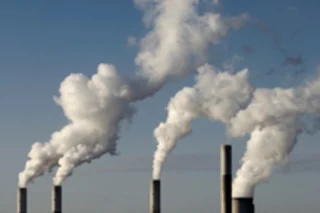When researchers rack up the carbon emitted across the world, the standard trends emerge: Europeans put less CO2 into the atmosphere than Americans, but China's rapid ascent is sending its emissions shooting past those of the United States. However, this week in the Proceedings of the National Academy of Sciences, Stanford University researchers attempt to rejigger the numbers to reflect not just where the emissions are produced, but who is responsible for them—who's buying and consuming the products that cause those emissions. After study global trade databases, Steven Davis and Ken Caldiera say that in 2004,
23 per cent of global CO2 emissions – some 6.2 gigatonnes – went in making products that were traded internationally. Most of these products were exported from China and other relatively poor countries to consumers in richer countries [New Scientist]
. The researchers say that developed countries outsource about a third of the carbon ...














